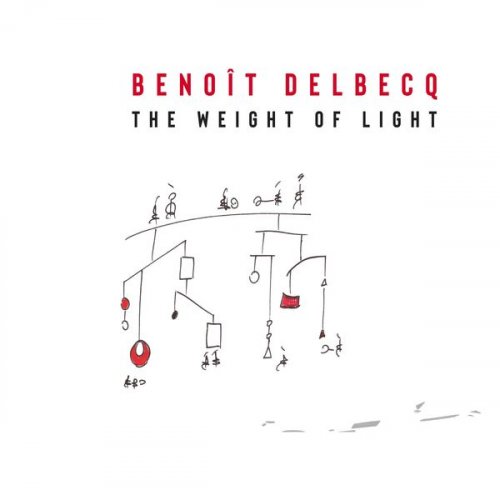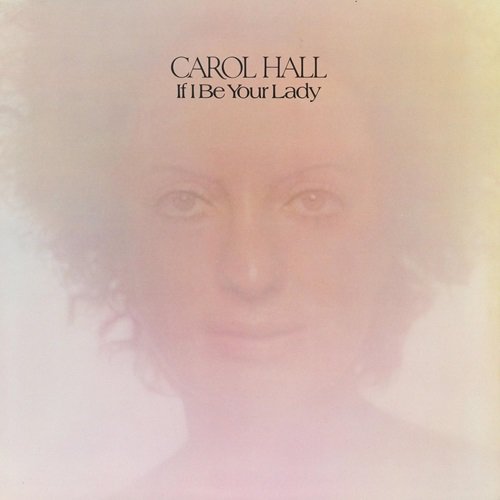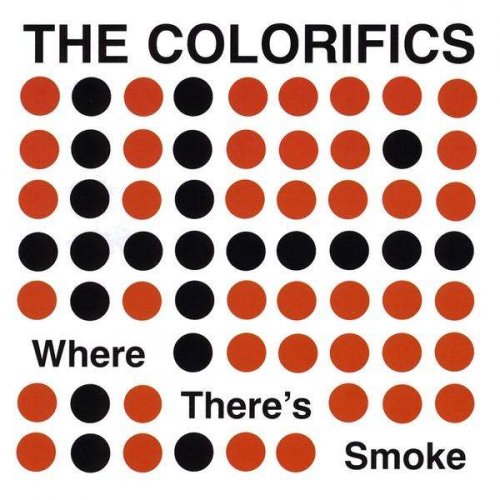Benoit Delbecq - The Weight of Light (2021)

Artist: Benoit Delbecq
Title: The Weight of Light
Year Of Release: 2021
Label: Pyroclastic Records
Genre: Jazz
Quality: FLAC (tracks) | Mp3 / 320kbps
Total Time: 48:57
Total Size: 223 MB | 111 MB
WebSite: Album Preview
TracklistTitle: The Weight of Light
Year Of Release: 2021
Label: Pyroclastic Records
Genre: Jazz
Quality: FLAC (tracks) | Mp3 / 320kbps
Total Time: 48:57
Total Size: 223 MB | 111 MB
WebSite: Album Preview
------------
01. Benoit Delbecq - The Loop of Chicago
02. Benoit Delbecq - Dripping Stones
03. Benoit Delbecq - Family Trees
04. Benoit Delbecq - Chemin sur le Crest
05. Benoit Delbecq - Au Fil de la Parole
06. Benoit Delbecq - Anamorphoses
07. Benoit Delbecq - Havn en Havre
08. Benoit Delbecq - Pair et Impair
09. Benoit Delbecq - Broken World
If I were asked to name two current pianists who I think have truly unique voices as improvisers, then I’d have no trouble in picking Benoît Delbecq and Jozef Dumoulin. I’m not a purist about this stuff – it’s not a requirement for me that an improviser have a unique voice, however if this is what you’re after then these two really, really deliver the goods.
As such, I jumped at the chance to review Delbecq’s new offering, for release on 12 February, a solo piano album, The Weight of Light. And I’m glad that I did, because it’s stunning. While the album speaks to me with complete immediacy, I understand that as an improviser I may hear it in a different way to others, and that it may not be so accessible to all. If a chef told you to try an odd combination of flavours, or if an artist told you to take a chance on some work that you might have reservations about, then I’m sure you’d do it. I’d like you to take a chance on this album – as someone that lives and breathes improvised music I want you to know that, to me at least, it is well worth your time.
My first experience of Delbecq’s playing was through Kartet’s The Bay Window, and the Benoît Delbecq Unit’s Phonetics (featuring none other than Mark Turner on saxophone). I initially listened to both of these albums on the recommendation of my close friend, and musical partner in crime, Alex Merritt. To collect my thoughts on The Weight of Light I arranged an online listening session with Alex, and our fellow improvisers Josh Ison and Ben Comeau. Their insightful comments and suggestions have helped me to shape the review that follows.
Newbies to Delbecq’s music may find themselves, upon pressing play on the first track The Loop of Chicago, wondering who the percussionist is, and why they didn’t get a credit on the album sleeve. What you’re hearing is ‘prepared’ piano – by treating the strings with Blu Tack, screws, and other items, you can produce a whole new sonic world from the instrument. Delbecq prefers wood over metal for this task – I know this first hand as when I once told him about my having prepared a piano with screws (for my album Permission with Paula Rae Gibson) he told me in no uncertain terms never to do this again! Preparing the piano allows Delbecq to create a whole range of percussive sounds to interact with, and support, his unique harmonic and melodic vocabulary. Timbrally and rhythmically one might hear echoes of Shona Mbira music from Zimbabwe, and Bata drumming from Yorubaland. John Cage’s ‘Sonatas and Interludes for Prepared Piano’ also come to mind, as well as, at times, the water drumming of the Aka Pygmies (a notable influence on his Kartet collaborator Stéphane Galland’s ‘Aka Moon’). Throughout this first track, his melodic statements are met with percussive responses. The loose tonality is developed with ever-surprising melodic explorations – odd clusters seem to lead you in one direction, but inevitably resolve to somewhere unexpected. In this track, and throughout the album, Delbecq often frames then reframes pedal-notes with a Paul Bley-ish twisted diatonicism (and sometimes bluesiness). Throughout his melodic lines he also subtly sustains certain notes, which amalgamate into intriguing clashes.
From the rhythmic and melodic focus of the opening track, we move into darker harmonic terrain with Dripping Stones. The title evokes the soundscape that you find yourself in, with complex structures forming then dissipating from single notes and intervals, feeling somehow like the drops falling from wet stone. From this complexity emerges a brief moment of calm as we’re treated to a shimmeringly bare D major chord at c.40 seconds in. This is short-lived, as the labyrinthine structures regroup, leaving us unresolved among the raindrops.
Family Trees then launches us straight back into the percussive world of the opener. This time the groove is slow and mysterious, and the melodies subdued and melancholic. The album artwork is by Delbecq himself, and represents his ‘deeply personal connections to the music inspired by movement-centric perspectives on shadow and light.’ It is an image of a hanging mobile, inspired by one that cast a shadow on the wall of his parents’ bedroom when he was a child. For me it also conjures up family trees (especially genetic pedigree charts), perhaps another reference to his family and childhood experience? ‘Chemin sur le Crest’ takes us on a similar turn, but this time featuring a looping cycle of widely spread intervals. The almost tonal-functionality of the progression provides us with an enigmatically foreboding atmosphere.
Au Fil de la Parole is the first track in which the prepared and unprepared pitches appear as part of the same sonic landscape. It’s very strange, hauntingly placid, and beautiful.
Describing his music, Delbecq says: “When I’m composing, it’s exactly like I’m looking at inventing the future shape of an object …so I look at it from different places. It’s like a 3-D way of conceiving things that has to do with optical phenomena. If I move around it, it will reveal shapes that are hidden at other angles.” The title of the next track, Anamorphoses describes an artistic technique in which the viewer can only make sense of what they are seeing from a specific vantage point. The web of rhythms that form the groove of the composition seem to provide us with just such a situation – or rather, as he suggests, there are several vantage points from which we can hear our way into what is happening. The influence of György Ligeti feels ever-present in Delbecq’s work, and this track is a case in point. Anecdotally I’ve heard that Ligeti’s personal advice to the pianist was to ‘keep doing what you’re doing,’ and I can very much believe that this is true. Various musicians have also noted a speech-like quality to his rhythmic phrasing, leading many of us to wonder if speech transcription has played a role in his musical development.
Havn en Havre (a possible allusion to a painting) is centred on a chord-cycle, over which Delbecq plays some beautiful, and harmonically adventurous, melodic lines – full of twists and turns. The intensely percussive Pair et Impair (meaning ‘even and odd’) is followed by the album closer, Broken World. The bleak chromaticism of the track’s opening gives way to a glistening, delicate melody over some unexpectedly tonal minor harmony. We’re treated to some more warped Delbecq-ian melodicism and then, after a little more darkness and a further statement of this simple theme, the piece converges towards a surprisingly positive final chord.
This is a wonderful album which I’ve really enjoyed getting my ears inside. Delbecq’s playing and writing are captivating and original. It’s a mysterious and moving artistic statement from a richly important voice in contemporary improvised music. ~Review by Sam Leak
As such, I jumped at the chance to review Delbecq’s new offering, for release on 12 February, a solo piano album, The Weight of Light. And I’m glad that I did, because it’s stunning. While the album speaks to me with complete immediacy, I understand that as an improviser I may hear it in a different way to others, and that it may not be so accessible to all. If a chef told you to try an odd combination of flavours, or if an artist told you to take a chance on some work that you might have reservations about, then I’m sure you’d do it. I’d like you to take a chance on this album – as someone that lives and breathes improvised music I want you to know that, to me at least, it is well worth your time.
My first experience of Delbecq’s playing was through Kartet’s The Bay Window, and the Benoît Delbecq Unit’s Phonetics (featuring none other than Mark Turner on saxophone). I initially listened to both of these albums on the recommendation of my close friend, and musical partner in crime, Alex Merritt. To collect my thoughts on The Weight of Light I arranged an online listening session with Alex, and our fellow improvisers Josh Ison and Ben Comeau. Their insightful comments and suggestions have helped me to shape the review that follows.
Newbies to Delbecq’s music may find themselves, upon pressing play on the first track The Loop of Chicago, wondering who the percussionist is, and why they didn’t get a credit on the album sleeve. What you’re hearing is ‘prepared’ piano – by treating the strings with Blu Tack, screws, and other items, you can produce a whole new sonic world from the instrument. Delbecq prefers wood over metal for this task – I know this first hand as when I once told him about my having prepared a piano with screws (for my album Permission with Paula Rae Gibson) he told me in no uncertain terms never to do this again! Preparing the piano allows Delbecq to create a whole range of percussive sounds to interact with, and support, his unique harmonic and melodic vocabulary. Timbrally and rhythmically one might hear echoes of Shona Mbira music from Zimbabwe, and Bata drumming from Yorubaland. John Cage’s ‘Sonatas and Interludes for Prepared Piano’ also come to mind, as well as, at times, the water drumming of the Aka Pygmies (a notable influence on his Kartet collaborator Stéphane Galland’s ‘Aka Moon’). Throughout this first track, his melodic statements are met with percussive responses. The loose tonality is developed with ever-surprising melodic explorations – odd clusters seem to lead you in one direction, but inevitably resolve to somewhere unexpected. In this track, and throughout the album, Delbecq often frames then reframes pedal-notes with a Paul Bley-ish twisted diatonicism (and sometimes bluesiness). Throughout his melodic lines he also subtly sustains certain notes, which amalgamate into intriguing clashes.
From the rhythmic and melodic focus of the opening track, we move into darker harmonic terrain with Dripping Stones. The title evokes the soundscape that you find yourself in, with complex structures forming then dissipating from single notes and intervals, feeling somehow like the drops falling from wet stone. From this complexity emerges a brief moment of calm as we’re treated to a shimmeringly bare D major chord at c.40 seconds in. This is short-lived, as the labyrinthine structures regroup, leaving us unresolved among the raindrops.
Family Trees then launches us straight back into the percussive world of the opener. This time the groove is slow and mysterious, and the melodies subdued and melancholic. The album artwork is by Delbecq himself, and represents his ‘deeply personal connections to the music inspired by movement-centric perspectives on shadow and light.’ It is an image of a hanging mobile, inspired by one that cast a shadow on the wall of his parents’ bedroom when he was a child. For me it also conjures up family trees (especially genetic pedigree charts), perhaps another reference to his family and childhood experience? ‘Chemin sur le Crest’ takes us on a similar turn, but this time featuring a looping cycle of widely spread intervals. The almost tonal-functionality of the progression provides us with an enigmatically foreboding atmosphere.
Au Fil de la Parole is the first track in which the prepared and unprepared pitches appear as part of the same sonic landscape. It’s very strange, hauntingly placid, and beautiful.
Describing his music, Delbecq says: “When I’m composing, it’s exactly like I’m looking at inventing the future shape of an object …so I look at it from different places. It’s like a 3-D way of conceiving things that has to do with optical phenomena. If I move around it, it will reveal shapes that are hidden at other angles.” The title of the next track, Anamorphoses describes an artistic technique in which the viewer can only make sense of what they are seeing from a specific vantage point. The web of rhythms that form the groove of the composition seem to provide us with just such a situation – or rather, as he suggests, there are several vantage points from which we can hear our way into what is happening. The influence of György Ligeti feels ever-present in Delbecq’s work, and this track is a case in point. Anecdotally I’ve heard that Ligeti’s personal advice to the pianist was to ‘keep doing what you’re doing,’ and I can very much believe that this is true. Various musicians have also noted a speech-like quality to his rhythmic phrasing, leading many of us to wonder if speech transcription has played a role in his musical development.
Havn en Havre (a possible allusion to a painting) is centred on a chord-cycle, over which Delbecq plays some beautiful, and harmonically adventurous, melodic lines – full of twists and turns. The intensely percussive Pair et Impair (meaning ‘even and odd’) is followed by the album closer, Broken World. The bleak chromaticism of the track’s opening gives way to a glistening, delicate melody over some unexpectedly tonal minor harmony. We’re treated to some more warped Delbecq-ian melodicism and then, after a little more darkness and a further statement of this simple theme, the piece converges towards a surprisingly positive final chord.
This is a wonderful album which I’ve really enjoyed getting my ears inside. Delbecq’s playing and writing are captivating and original. It’s a mysterious and moving artistic statement from a richly important voice in contemporary improvised music. ~Review by Sam Leak
FLAC
IsraCloud : Download
Mp3
IsraCloud : Download



![Antonio Faraò & Stéphane Belmondo - Do it! (2026) [Hi-Res] Antonio Faraò & Stéphane Belmondo - Do it! (2026) [Hi-Res]](https://www.dibpic.com/uploads/posts/2026-02/1772037177_1.jpg)


![Wes Montgomery - Full House (Remastered 2026 / Live At Tsubo / 1962) (1962) [Hi-Res] Wes Montgomery - Full House (Remastered 2026 / Live At Tsubo / 1962) (1962) [Hi-Res]](https://www.dibpic.com/uploads/posts/2026-02/1772124946_cover.jpg)
![Yannick Peeters, Frans van Isacker, Frederik Leroux & Tom Rainey - Smalltalk Code (2026) [Hi-Res] Yannick Peeters, Frans van Isacker, Frederik Leroux & Tom Rainey - Smalltalk Code (2026) [Hi-Res]](https://www.dibpic.com/uploads/posts/2026-02/1772112309_byqbmx6vl2tua_600.jpg)
